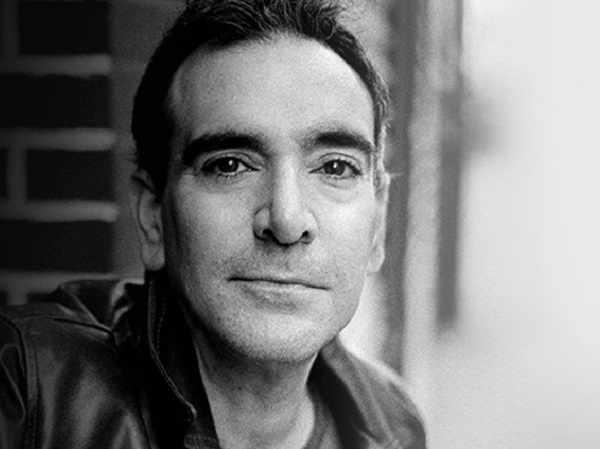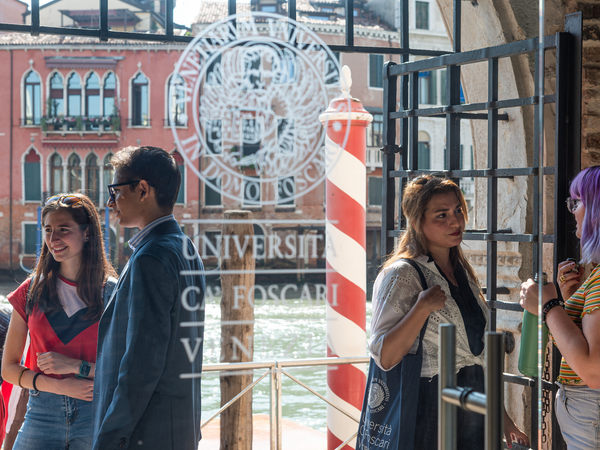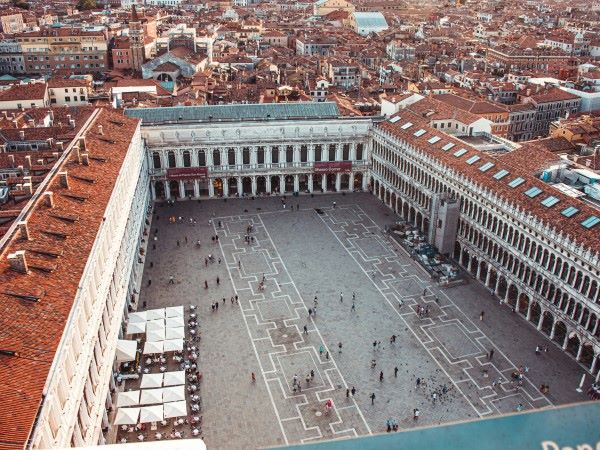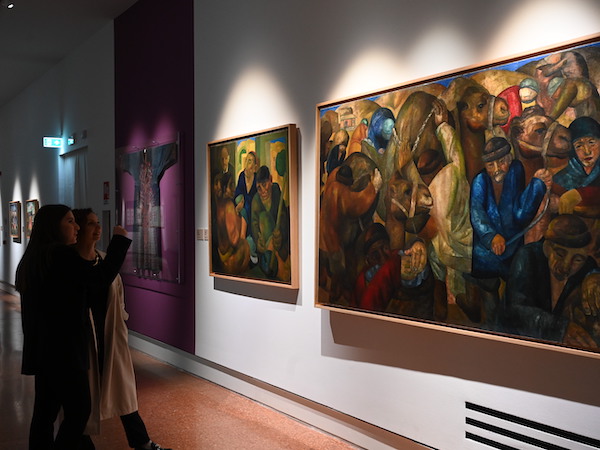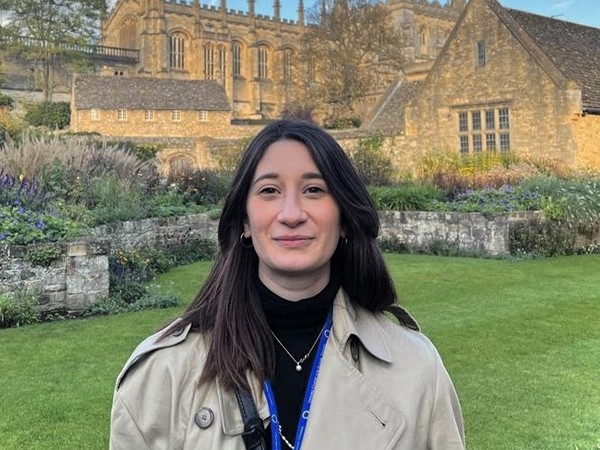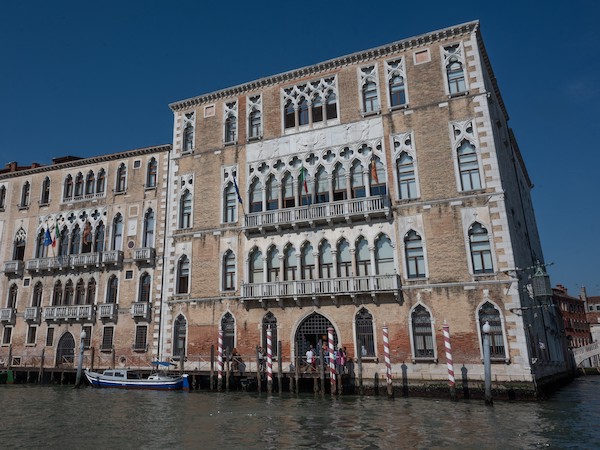The poems of Aaron Poochigian, the American heir of Sappho, beg to be sung: the rhymes, the metric, the tropes all play with each other to recall the nostalgia and frustration for lost loves, , as he puts it. Poochigian drags us into his world, a place lit by a lyrical aura, where the verse is used to express everything. These entrancing verses show the influence of his idols - Sappho, Yeats and Auden.
Aaron Poochigian will be in Venice on Friday, April 5th, as a guest of the Incroci di Civiltà literary festival.
Andrea Carboni, a Ca’ Foscari student who studied Poochigian’s work in his American Literature class, has interviewed the poet for CafoscariNEWS.
As a translator and a poet, how does it feel to be here in Venice, presenting a translation of your latest collection of poetry at the Incroci di Civiltà festival?
I grew up in a small town in the middle of nowhere, USA, so I escaped, through literature, into various exotic locales. There were legendary cities—Troy, Athens, Venice, Paris. Half-myth, half-history, these places were attractive to me because they seemed the opposite of where I was. Often, when I was living in Athens, I succumbed to a feeling of the numinous, simply because I was there, where Socrates had lived, where Aeschylus had written his tragedies. I will no doubt feel the same way in Venice, like a pilgrim at a holy site.
How does your classical background influence your writing? Classical poetry is very strict in following metrical rules, how do you relate to that? You sometimes use features of Sappho’s repertoire, can you tell us more about that?
Sappho’s poems were songs originally meant to be accompanied by the lyre. I want my lyric poems to be song-like as well, so I write metrical poetry that rhymes in order to tap into a power of enchantment. Free-verse poetry simply would not give me the sort of music that I want. I do use elements of Sappho’s style. One trope I have used is the “priamel,” a rhetorical device in which alternatives, usually three of them, are presented as foils to be dismissed before the introduction of the poet’s assertion. Sappho, famously, in poem 16, while contemplating what “the most beautiful thing in the world” is, suggests “ships, infantry and horsemen” before dismissing them:
Some call ships, infantry and horsemen
the greatest beauty earth can offer.
I say it is whatever a person
most lusts after.
I also use compound adjectives in the style of Sappho: “slug-infested” (p. 34), “hair-harassing (p. 42), “lion-tousled” (p. 92), “diamond-eyed” (p. 112), “innocence-entangling” (p. 118). More generally, I, like Sappho, tend to write love songs about separation and frustrated longing.
What does it feel like coming to Venice, a city with a strong history of poetry, literature, and also classics? Is this your first time here, and does it thrill the poet in you to be in contact with such a concentrate of history?
Venice is a holy city to lovers of literature and the arts. It is the place “where the merchants were the kings,/Where Saint Mark’s is, where the Doges used to wed the sea with rings” (Robert Browning, A Toccata of Galuppi’s, lines 2—3). I very much look forward to seeing the very Arsenal that Dante describes in the Inferno:
Quale ne l’arzanà de Viniziani
bolle l’inverno la tenace pece
a rimpalmare i legni lor non sani,
ché navicar non ponno – in quella vece
chi fa suo legno novo e chi ristoppa
le coste a quel che più vïaggi fece;
chi ribatte da proda e chi da poppa;
altri fa remi e altri volge sarte;
chi terzeruolo e artimon rintoppa –:
tal, non per foco ma per divin’ arte,
bollia là giuso una pegola spessa,
che’;nviscava la ripa d’ogne parte.
(Inferno 21, 7—18)
I am also very fond of Claudio Monteverdi, the father of modern opera, and I will do my best to visit his tomb in the Basilica di Santa Maria Gloriosa dei Frari.
How do you live your life as a poet in the contemporary world? Do you think poetry is still fascinating people the way it used to?
I used to be both an academic and a poet but I have stopped living a double life. I have gone “all in” on poetry, and I have been much happier (and much poorer) since. I do think that poetry has the same enchanting power it had in the days of Homer, though it is rare today to come into contact with someone who can harness that power. Though not a “Spoken-Word” poet, I do place particular emphasis on reaching out with my voice to embrace audiences both from the page and from the stage, in the hope of giving them a feeling of fascination.
Which were the books you loved in your early years that shaped your work and are still influential?
The Poets W.B. Yeats and W.H. Auden have been the two greatest influences on me. My earliest poems were imitations of their work, and now my poems are attempts, again and again, to reach the same level Yeats and Auden reach when they are at their best. Dante, I am proud to say, has always been there for me. I remember reading the Dorothy Sayers translation of Inferno and Purgatorio on my front lawn in high school, and I have gone on to read Dante in the original. The Divine Comedy is addictive—sometimes I have to force myself to stop reading it. There is a great temptation for me to go into the world of Dante’s poetry and not return.
What should we expect from your forthcoming works?
Personal religion, adventures and obscenity—that’s what’s in my future. My next book of lyric poems, “American Divine,” has won the Richard Wilbur Award and will be out in 2020. The book draws on the polytheistic perspective of Greek and Roman poetry and finds sacred space and the numinous in public places such as Union Square in New York City. The programmatic poem “American Divine” addresses the reader in that Square:
It starts this evening, in the winter flaw—
seeking new prophets, modern sites to cherish,
finding divinities in earthly powers.
You are a church of one, a private parish;
be passionate in the pursuit of awe.
Another forthcoming book, “Mr. Either/Or: All the Rage,” continues the story of my verse novel “Mr. Either/Or” with a pregnancy and hurricane. Finally, I have been contracted by W. W. Norton press to translate four plays by the Ancient Greek Comic poet Aristophanes. They are very fun and dirty.





